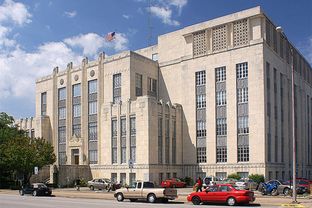Travis County Poised to File Its Own Volkswagen Lawsuit
Travis County looks poised to jump on the bandwagon of Texas governments suing Volkswagen over its deceptive emissions software.
In a 4-0 vote on Tuesday, its Commissioners Court authorized the county attorney to sue Volkswagen Group of America, Inc. and subsidiary Audi of America, alleging violations of Texas environmental laws.
The decision comes after Texas Attorney General Ken Paxton — who has filed his own suits — asked Harris and Fort Bend Counties to halt their litigation against the company.
Harris County has declined Paxton’s request. Fort Bend is still weighing its options.
By abandoning their lawsuits, the counties would leave millions of dollars in potential damages on the table.
*****
The Travis County district attorney's office expects to review hundreds of criminal cases that involved the interpretation of DNA evidence with multiple contributors, following the implementation of new testing standards.
In a statement Wednesday afternoon, the office said that it is reviewing past cases to include a new standard involving mixed DNA, genetic evidence that might come from more than one person. With that additional standard — which evidence testing agencies across the country are beginning to adopt — the chances of a defendant or someone already convicted being tied to a crime might change, affecting that case.
The office stated it's unclear how many criminal cases will be reviewed but settled for "probably in the hundreds." The office also plans to add more attorneys and paralegals to its Conviction Integrity Unit.
*****
In a report released Tuesday, the Texas State Auditor's Office says the Dallas County District Attorney's Office misused expenditures from the State Asset Forfeiture Funds during fiscal years 2013 and 2014, when former DA Craig Watkins was at the helm.
Based on data provided by the county, the office used about $80,000 in those years that weren't in compliance with the Texas Code of Criminal Procedure, the report states.
The office spent the funds on a legal settlement related to a claim against the county and Watkins, outside counsel fees for a contempt matter in which he was a defendant, travel expenditures and donations, according to the report.
*****
We have an update on the long-running battle of Texas’ redistricting efforts, a legal conflict that is currently pending before a three-judge federal panel in San Antonio.
The Lone Star Project is asking the court to bar Texas from using its 2013 House and Congressional maps for the 2016 election cycle. The group argues opponents are likely to convince the court that lawmakers intentionally discriminated against minorities when drawing the map.
“There is no actual harm to the State from having to give full and fair recognition to the rights of minority voters in Texas House and Texas Congressional elections,” the group said in a filing this week. “The state has shown itself unwilling to take any steps to protect those rights without either the threat of, or the actual occurrence, of judicial intervention.”
*****
The attorney general doesn’t want Texas to pay the opponents’ attorney fees in a long-running battle over the state’s redistricting maps, and he’s asking the U.S. Supreme Court for help.
On Thursday, Paxton petitioned the court to review a lower court's decision requiring Texas to pay more than $1 million in legal fees in the case State of Texas v. Wendy Davis, et al.. He called that ruling unconstitutional.
The case, which dates back to 2011, is complicated, and so is the fee issue.
In 2013, a federal district court ruled that there was evidence that lawmakers intentionally discriminated when redrawing the boundaries. But the U.S. Supreme Court soon complicated the case when it struck down a key section of the Voting Rights Act that had forced Texas to seek permission before making changes to election procedures.
Texas filed a motion to dismiss the lower court’s decision on its map, arguing it was moot in light of the Supreme Court ruling. The lower court agreed but said the plaintiffs “remain free to seek attorneys fees after dismissal.”
And they did.
Instead of filing an opposition to those motions, Texas filed an “advisory” declaring it did not intend to respond unless the court requested it to do so. It argued that the Supreme Court decision alone closed the door on the question about attorneys’ fees.
The U.S. Court of Appeals for the District of Columbia Circuit didn’t buy it.
“What little argument Texas did advance in its 'Advisory' provides an insufficient basis for overturning the district court’s award of attorneys’ fees,” that court held in August.
Now, Paxton wants the justices to review that ruling.
“Supreme Court opinions have the binding effect of law the day they are issued,” he said in a statement. “The lower courts were unjustified in compelling Texas to pay attorneys’ fees under a law that was invalidated as unconstitutional a full year earlier. We are asking the Court to step in to preserve its authority to establish the supreme law of the land.”


